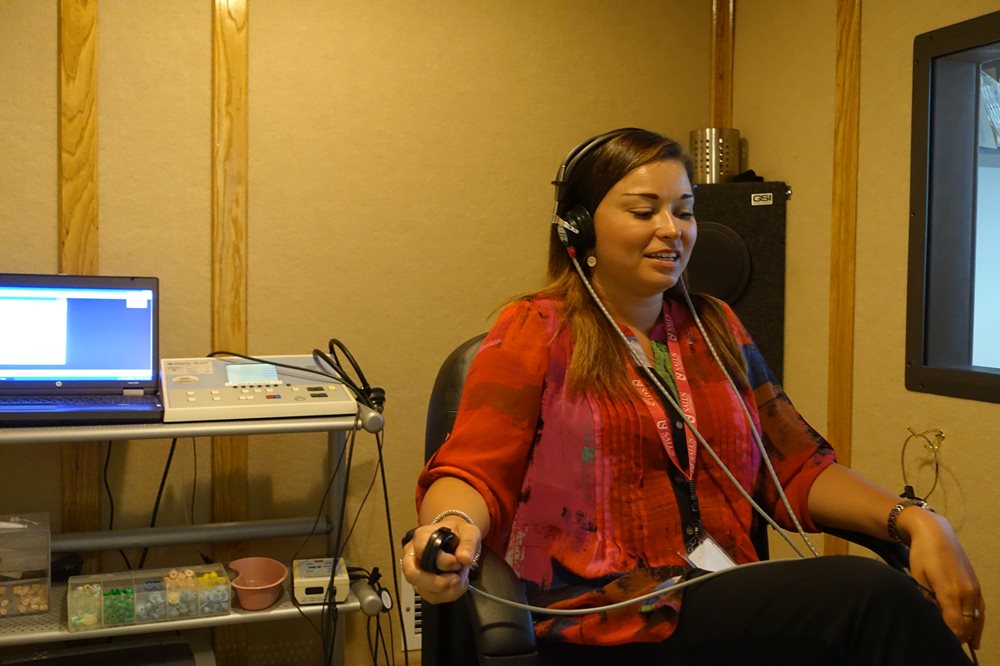Noise Induced Hearing Loss
Hearing loss can result from damage to the structures and/or nerve fibers in the inner ear that responds to sound. This type of hearing loss, termed “noise-induced hearing loss,” (NIHL) is usually caused by exposure to excessively loud sounds.
 NIHL can be immediate or it can take a long time to be noticeable. It can be temporary or permanent, and can affect one or both ears. Hearing loss from loud noise is permanent, and most people don’t notice their hearing is damaged until it’s too late.
NIHL can be immediate or it can take a long time to be noticeable. It can be temporary or permanent, and can affect one or both ears. Hearing loss from loud noise is permanent, and most people don’t notice their hearing is damaged until it’s too late.
According to a 2018 Centers for Disease Control and Prevention (CDC) study, an estimated 12.5% of children and adolescents aged six to 19 years (approximately 5.2 million) and 17% of adults aged 20 to 69 years (approximately 26 million) have suffered permanent damage to their hearing from excessive exposure to noise.
Hearing loss from noise may not be obvious at first, but symptoms can build over time. Most people don’t feel any warning signs (like pain or ringing in your ears) until their hearing is already damaged. If loud noises don’t bother you as much as they used to, that means you’ve already lost some of your hearing.
Taking action is important because untreated hearing loss, besides detracting from quality of life and the strength of relationships, has been linked to other health concerns such as depression, dementia, and heart disease.
Luckily, NIHL is preventable. You can help prevent hearing loss from noise by following these simple lifestyle changes:
The best way to avoid noise-induced hearing loss is to keep away from loud noise as much as you can. Generally, a noise is probably loud enough to damage your hearing if:
- You have to raise your voice to talk to other people.
- You can't hear what people nearby are saying.
- It hurts your ears.
- You have ringing in your ears or muffled hearing afterwards.
Take care when listening to music
 Listening to loud music through earphones and headphones is one of the biggest dangers to your hearing. To help avoid damaging your hearing:
Listening to loud music through earphones and headphones is one of the biggest dangers to your hearing. To help avoid damaging your hearing:
- Turn the volume up just enough so you can hear your music comfortably, but no higher. Even just turning down the volume a little bit can make a big difference to your risk of hearing damage.
- If you like to enjoy music through headphones or earbuds, you can protect your ears by following the 60/60 rule. The suggestion is to listen with headphones at no more than 60% volume for no more than 60 minutes a day.
- Earbuds are especially dangerous, as they fit directly next to the eardrum. If possible, opt for over-the-ear headphones.
- Any loud music, not just music played through headphones, presents a risk for noise-induced hearing loss. If you're hosting a social event, keep the music at a volume that won't force people to shout in order to hold a conversation.
 Protect your hearing during loud events and activities
Protect your hearing during loud events and activities
To protect your hearing during loud activities and events such as at nightclubs, concerts or sports events:
- Move away from sources of loud noises (such as loudspeakers).
- Try to take a break from the noise every 15 minutes.
- Give your hearing about 18 hours to recover after exposure to lots of loud noise.
- Wear hearing protectors, such as earplugs or earmuffs. If you’re a parent, carry hearing protectors for your children and be a hearing health role model by wearing them yourself.
 Your employer is obliged to make changes to reduce your exposure to loud noise for example, by:
Your employer is obliged to make changes to reduce your exposure to loud noise for example, by:
- Switching to quieter equipment, if possible.
- Making sure you're not exposed to loud noise for long periods.
- Providing hearing protection, such as earmuffs or earplugs.
- Make sure you wear any hearing protection you're given.
- Get your hearing tested
Get a hearing test as soon as possible if you're worried you might be losing your hearing. The earlier hearing loss is picked up, the earlier something can be done about it.
You might also want to consider having regular hearing checks if you're at a higher risk of noise-induced hearing loss, for example, if you're a musician or work in noisy environments.
If you suspect that you may have some degree of hearing loss, contact the Pennsylvania Ear Institute. Our expert audiologists will assess your hearing and make recommendations on how to address your hearing needs.